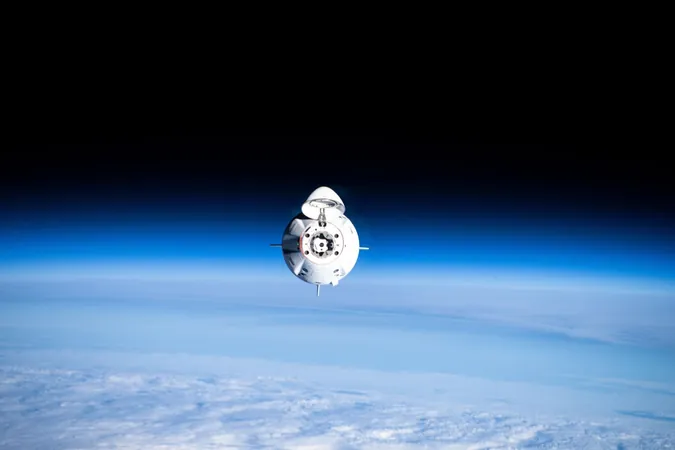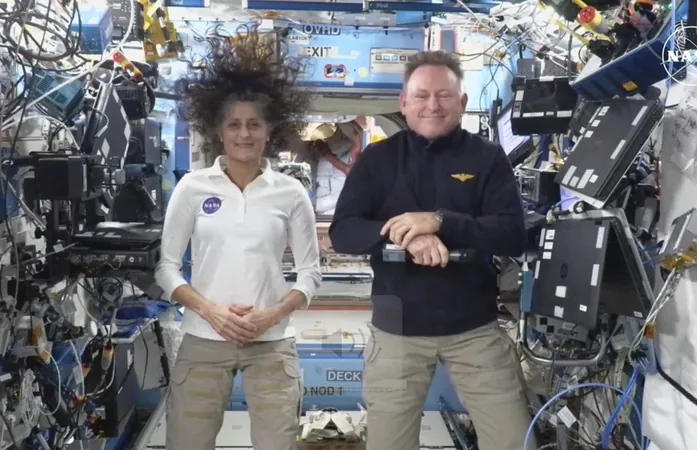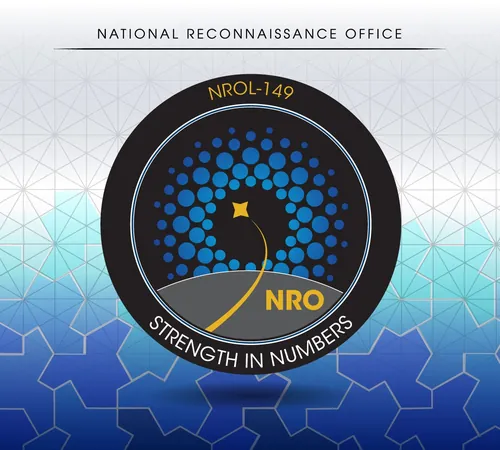
NASA’s Bold Move: Paving the Way for the Future of Commercial Space Travel!
2024-12-20
Author: William
NASA has recently unveiled a groundbreaking report that sheds light on its long-standing commitment to fostering the U.S. commercial space sector. Titled "Enabling America on the Space Frontier: The Evolution of NASA's Commercial Space Development Toolkit," this extensive document details 17 key mechanisms through which the agency has bolstered private space endeavors, significantly benefitting humanity and our understanding of the cosmos.
According to Alex MacDonald, NASA's chief economist, “This is the most extensive and comprehensive historical analysis produced by NASA on how it has contributed to commercial space development over the decades.” He emphasizes that these initiatives have not only secured NASA’s regular access to space through collaborations with notable companies like SpaceX and Rocket Lab but have also paved the way for the first-ever private lunar lander, developed by Intuitive Machines.
With the commercial space sector booming, the report serves not only as a historical account but also as a strategic guide for agency leaders and stakeholders to navigate the complex landscape of modern space exploration and development.
A Rich History of Support
NASA's relationship with the commercial space sector spans several periods, each marked by distinctive technologies and economic trends:
- **1915–1960**: The formative years under the National Advisory Committee on Aeronautics (NACA) and pre-Apollo initiatives.
- **1961–1980**: The pioneering Apollo era, which redefined space exploration.
- **1981–2010**: The era of the Space Shuttle, a game-changer in reusable spaceflight technology.
- **2011–Present**: The post-shuttle commercial era, where collaboration with private entities has become the norm.
Throughout these decades, NASA has championed groundbreaking innovations in satellite communications, launch technologies, and remote sensing systems. The report highlights that NASA has continually adapted its operational models to encourage more profound commercial participation, reflecting a shift from mere existence of commercial capability to a vibrant, intricate partnership.
The 17 Mechanisms of Success
The report details 17 mechanisms that NASA employs to foster commercial growth, including:
1. Contracts and Partnership Agreements 2. Research and Technology Development (R&TD) 3. Dissemination of Research and Scientific Data 4. Education and Workforce Development 5. External Workforce Engagement 6. Technology Transfer 7. Technical Support 8. Enabling Infrastructure 9. Launch Services 10. Direct In-Space Support 11. Standards and Regulatory Framework Support 12. Public Engagement 13. Industry Engagement 14. Venture Capital Engagement 15. Market Stimulation Funding 16. Economic Analysis and Due Diligence Capabilities 17. Narrative Encouragement
Through these mechanisms, NASA has given rise to a new era of innovation in the commercial space sector, with small satellite technologies inspiring a wave of new startups. Initiatives such as the Commercial Lunar Payload Services (CLPS), commercial low Earth orbit destinations, and human landing systems are just the tip of the iceberg in terms of what's on the horizon.
The Future Is Now!
The agency's commitment has progressed from viewing commercial partnerships as an exception to adopting them as a preferred approach for many missions. The current post-shuttle commercial era parallels the fervor of the Space Race, with technological advancements accelerating at unprecedented rates.
With NASA continuing to deploy these 17 mechanisms, it is clear that the future of commercial space activities is not only secure but poised for explosive growth. Whether you’re an aspiring astronaut, a curious entrepreneur, or simply an enthusiast of space exploration, now is the time to look toward the stars—NASA is leading the charge into a vibrant commercial space future!
Stay tuned as we delve deeper into NASA’s visionary strategies and explore the impacts they have on our reach into the cosmos!









 Brasil (PT)
Brasil (PT)
 Canada (EN)
Canada (EN)
 Chile (ES)
Chile (ES)
 España (ES)
España (ES)
 France (FR)
France (FR)
 Hong Kong (EN)
Hong Kong (EN)
 Italia (IT)
Italia (IT)
 日本 (JA)
日本 (JA)
 Magyarország (HU)
Magyarország (HU)
 Norge (NO)
Norge (NO)
 Polska (PL)
Polska (PL)
 Schweiz (DE)
Schweiz (DE)
 Singapore (EN)
Singapore (EN)
 Sverige (SV)
Sverige (SV)
 Suomi (FI)
Suomi (FI)
 Türkiye (TR)
Türkiye (TR)